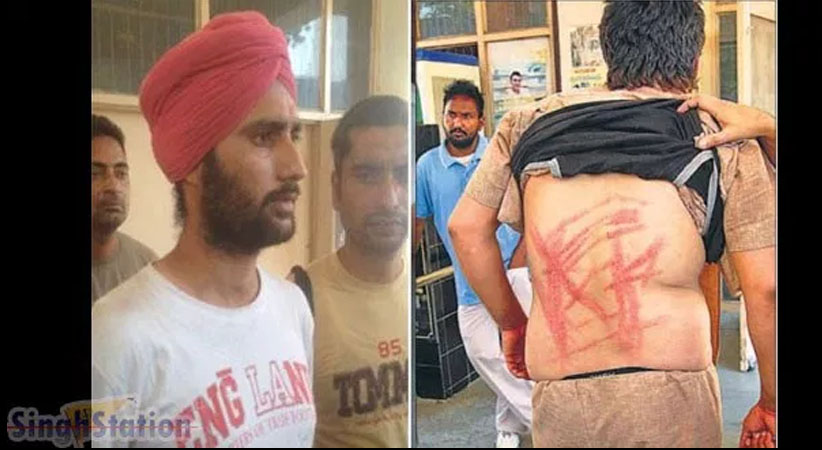NEWS & MEDIA
NEWS & MEDIA
Tamil Nadu India | 2016-03-15Honour Killing and Caste Violence in Tamil Nadu

March 15, 2016
Tamil Nadu India
The afternoon of Sunday 13 March would have been just another day in Udumalpet area of Tirupur in Tamil Nadu except that one 22-year-old Dalit boy, V Shankar, was hacked to death by three goons at 3 in the afternoon in full public view. After they were through killing Shankar, they brutally beat up his 19-year-old wife – Kausalya, before leaving.
Shankar, a resident of Kumaralingam village, was a young engineering student still pursuing his studies from a private engineering college and had married Kausalya, a girl from the upper caste Thevar community, just eight months ago. Kausalya, a resident of Palani in Dindigul district, had recently taken up a job to support her husband complete his studies. Post marriage, both were staying in Komaralingam.
The fact that a Dalit boy had the temerity to marry a girl from a higher caste, did not go down well with the girl’s family, who opposed the couple eloping and marrying against family wishes. Such was the opposition, that the father soon began threatening to kill the boy and repeatedly asked Kausalya to leave Shankar and return home.
The girl had earlier filed a police complaint against her father, but as usual, was taken lightly by the police. Sunday saw the consequence of that laxity. The boy is dead and the girl lies critically injured in hospital. The girl’s father has since surrendered while the goons are yet to be arrested.
A history of caste-related violence
As per 2014 crime data released by the National Crime Records Bureau (NCRB), Tamil Nadu recorded the second highest number of incidents of violence against SC/STs by other castes. Maharashtra topped the list.
Traditionally, Tamil Nadu has been a state with deep caste divisions and social hierarchy. However, post-independence, the erosion of traditional social hierarchy and increasing assertion by lower castes for social equality has given rise to increased social tension, stoked by political parties of all hues.
Rationalists like Periyar fought against this caste-based social divide but with little success as is evident from continuing caste-based violence. Rise of political parties representing Dalits, SC/ST communities and other backward castes, has only exacerbated the existing divide by further pushing their own divisive agenda rather than working towards a casteless society that modern India so badly needs.
Areas of south Tamil Nadu have major concentration of lower castes, some of whom now have emerged as landlords in their own right. However, this region has also been witness to frequent caste based violence.
In 2013, Gopalasamudram, a small village 25 kilometres outside Tirunelveli, came into the spotlight mainly on account of caste-based violence and tension between the Pallars, a scheduled caste community, and Thevars, a backward but upper caste.
Children from both communities used to attend Pannai Venkatarama Iyer High School. On Thevar Jayanthi, a day to mark the birthday of Muthuramalinga Thevar – a popular Thevar leader, the Principal happened to distribute one pencil and a chocolate to each student. The Pallar students, all Dalits, refused to accept the gift and this led to an immediate backlash from the Thevar community. People barged into the school and beat up the Dalit students. All 130 Pallar students subsequently withdrew from the school.
What started off as an innocuous function, resulted in subsequent tit-for-tat killing between the two communities. The result led to further isolation of the Dalits and denial of education to Pallar children, who refused to go back to the same school.
Attempts to run a Pallar promoted school in their part of the village proved futile with the Thevar community objecting and the state machinery failing to provide support or recognition to the school.
Tension soon spread to neighbouring villages that resulted in a Pallar man being dragged out of a bus and hacked to death in full public view in 2014.
Earlier in 2009, violence broke out in Ramanathapuram, a town in Madurai district, between the Thevars and Dalits. The clashes left six Dalits and five Thevars dead. The list of violent incidents is long and painful.
Communal tension seems to remain beneath the outward calm in Tamil Nadu today, with constant threat of bursting out at the slightest trigger. The unfortunate attack on Shankar and his wife was yet another incident that was a result of the deep caste divide that affects this important southern state.
Honour killing and caste violence continues unabated
So what is it that after 68 years of independence, India has still not been able to get rid of regressive social practices like honour killings and caste-related violence? Why is the nation so helpless in fighting this problem that shows no signs of abating? Why is it that the youth of today continues to be both aggressor and victim of this vicious circle of violence?
The answers lie in the collective failure of our political leadership to rise above petty politics and fight the prevailing caste system at the state and central level. Ever since independence, caste and religion based political parties have been allowed to mushroom, when the nation should have been actively discouraging them.
These parties came up as a consequence of state failure to protect SC/STs, OBCs and minorities from social, economic and political exploitation by the upper castes and the majority. By denying equal opportunity and fair justice to the oppressed only forced these communities to turn to political parties that represented their interests, for protection and relief.
The problem was that each of these political parties and organizations that claimed to represent respective oppressed groups and claimed to fight for their rights and equal opportunity, often served to increase the divide through provocative statements and instigation. Unfortunately, political leaders belonging to all communities have been guilty of this at some point.
The desire to win political control at the cost of communal and caste harmony has made its citizens pay a heavy price and is now the biggest impediment to India’s growth story.
Maps of India
Link to Source: https://www.mapsofindia.com/my-india/india/honour-killing-and-caste-violence-in-tamil-nadu





